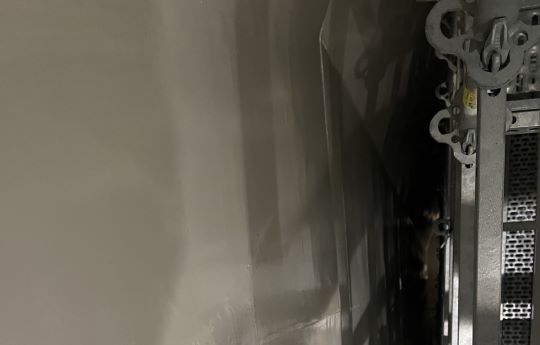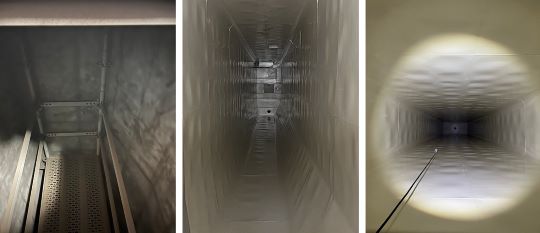To maintain high safety standards in the food and beverage industry, industrial coatings and repair compounds manufacturer Belzona works to develop innovative solutions for challenges related to equipment maintenance and corrosion protection.
Recently, after undergoing rigorous tests to ensure its suitability for dry food contact, the company says it achieved a breakthrough by successfully applying its Belzona 5811DW2 (DW immersion grade) tank lining at a flour mill in Belgium.
The Need for Food-Safe Coatings
The food and beverage industry is bound by strict regulations and guidelines to ensure the safety and quality of products. Before its eventual consumption, food comes into contact with many materials and articles during its production, processing, storage, preparation, and serving.
The European Food Safety Authority (Parma, Italy) of the European Union (EU) states that Food Contact Materials (FCMs) should be sufficiently inert. This is so that their constituents neither adversely affect consumer health nor influence food quality.
As a crucial part of the food supply chain, flour mills must adhere to these standards. Equipment used in the milling process—such as storage tanks, hoppers, chutes, and conveyors—is prone to wear, corrosion, and degradation over time. According to Belzona, traditional coating solutions often fall short in providing a long-lasting, food-safe barrier.
EU 10/2011 Regulation
The EU’s framework food contact legislation, Regulation (EC) No 1935/2004, covers the general rules applicable to all materials and articles intended to come into contact with foodstuffs. For specific materials such as plastics, more detailed legislation has been added in recent years.
Regulation (EU) 10/2011 sets out safety requirements for plastic materials and articles intended to come into contact with food. This regulation is a specific measure for plastic food contact materials as mentioned in the aforementioned framework regulation.
This regulation applies not only to plastics food contact packaging, but also to equipment such as food storage tanks, pipes, pumps, containers, conveyer belts, and more.
A Storage Tank Lining Solution
According to the manufacturer, Belzona 5811DW2 (DW immersion grade) is a solvent-free coating initially designed to protect surfaces operating under potable water immersion—or where potable water approval is required.
Perspect Benelux, a European distributor for the coating manufacturer, recently invested in comprehensive testing to evaluate the coating’s suitability for contact with dry foodstuffs.
Their customer, a large mill in Belgium specializing in the production and development of physically treated wheat flour and mixes used as cake flour, sought a coating to provide long-term corrosion protection while still being suitable for flour contact.
Building on the success of achieving WRAS approval for contact with drinking water, Belzona’s coating was put forward as a possible solution.
Comprehensive Testing
Perspect Benelux opted to have the coating tested by Belgian packaging institute IBE-BVI, which is recognized throughout Europe as accredited independent laboratory according to ISO 17025. Their results confirmed the coating’s compliance with specific requirements of the previously cited regulations for prolonged contact with dry foodstuffs.
The distributor was then able to provide tailored support to the customer, in collaboration with the manufacturer, by providing sufficient data and evidence to show that the coating was safe and suitable for their specific needs and service conditions.
Upon project completion, the positive results were recognized by Belgium’s Federal Agency for the Safety of the Food Chain (FAVV), which confirmed that the application was completed according to the approved method.

According to the manufacturer, the tank lining’s unique formulation ensures compliance with food safety regulations while also offering strong protection against corrosion and abrasion. It has been certified as non-leaching, with no harmful emissions or influences on dry food products, and flour-based on this customer’s specification.
This future-proof lining was also found to conform to the maximum limits of mineral oil aromatic hydrocarbons (MOAH), mineral oil saturated hydrocarbons (MOSH), and polyolefin oligomeric saturated hydrocarbons (POSH).
According to the manufacturer, these guidelines could soon become a requirement under new EU food standards being installed over the coming years.
Testing results were promising and exceeded expectations, which led to the green light being given for the lining’s application to 30 flour storage tanks at approximately 6,000 m2 (64,583.4 ft2) of total space.
What Was the Issue?
Due to the age of the installation, the original tank lining was blistering, and there was a risk it could contaminate the product being stored in the tanks. In order for the customer to re-use these old, out-of-service tanks, a new coating was required.
Other coatings were tested, but Belzona’s immersion-grade solution was the only one approved by the company’s quality assurance and quality control (QA-QC) department, according to the manufacturer. The alternative would have been to build a new silo complex, which would have been very expensive.
How Was the Lining Applied?
Applying the immersion-grade coating required following a meticulous process to ensure long-lasting protection. The tank’s steel surfaces were prepared, cleaned, and blasted to the recommended cleanliness standard, the NACE No. 2/Society for Protective Coatings (SSPC) Surface Preparation (SP) 10, “Near-White Metal Blast Cleaning,” and to a minimum profile of approximately 3 mils (76.2 microns).
Using airless spray equipment, two cream coats were then applied to an approximate dry film thickness of 15.8 mils (400 microns). According to the manufacturer, the successful flour-mill installation highlights the potential of this coating being adopted into the maintenance practices of food manufacturers across Europe.

Benefits in Flour Mills
As the coating manufacturer explains, benefits of this technology include:
- Tested in accordance with parts of food safety regulations: The coating meets some of the stringent requirements for materials in contact with dry foodstuffs, thereby providing a reliable solution for compliance with regulatory standards.
- Extended equipment lifespan: The coating’s robust nature enhances the durability of equipment, which can reduce the frequency of maintenance and replacement cycles.
- Solvent-free formulation: The solvent-free formulation means the coating is not only food-safe but also environmentally friendly. This characteristic aligns with the manufacturer’s commitment to sustainable practices, in which it can prioritize the safety of workers and the surrounding environment.
- Corrosion resistance: The technology acts as a barrier against corrosion, thereby preventing the degradation of equipment and maintaining equipment integrity.
- Improved operational efficiency: With reduced downtime for maintenance, flour mills can operate more efficiently, contributing to increased productivity and cost savings.
“As industries evolve, the implementation of these advanced solutions will become pivotal in ensuring a reliable and sustainable food supply chain,” says Rhiannon McIver, marketing supervisor.
Source: Belzona, www.belzona.com.